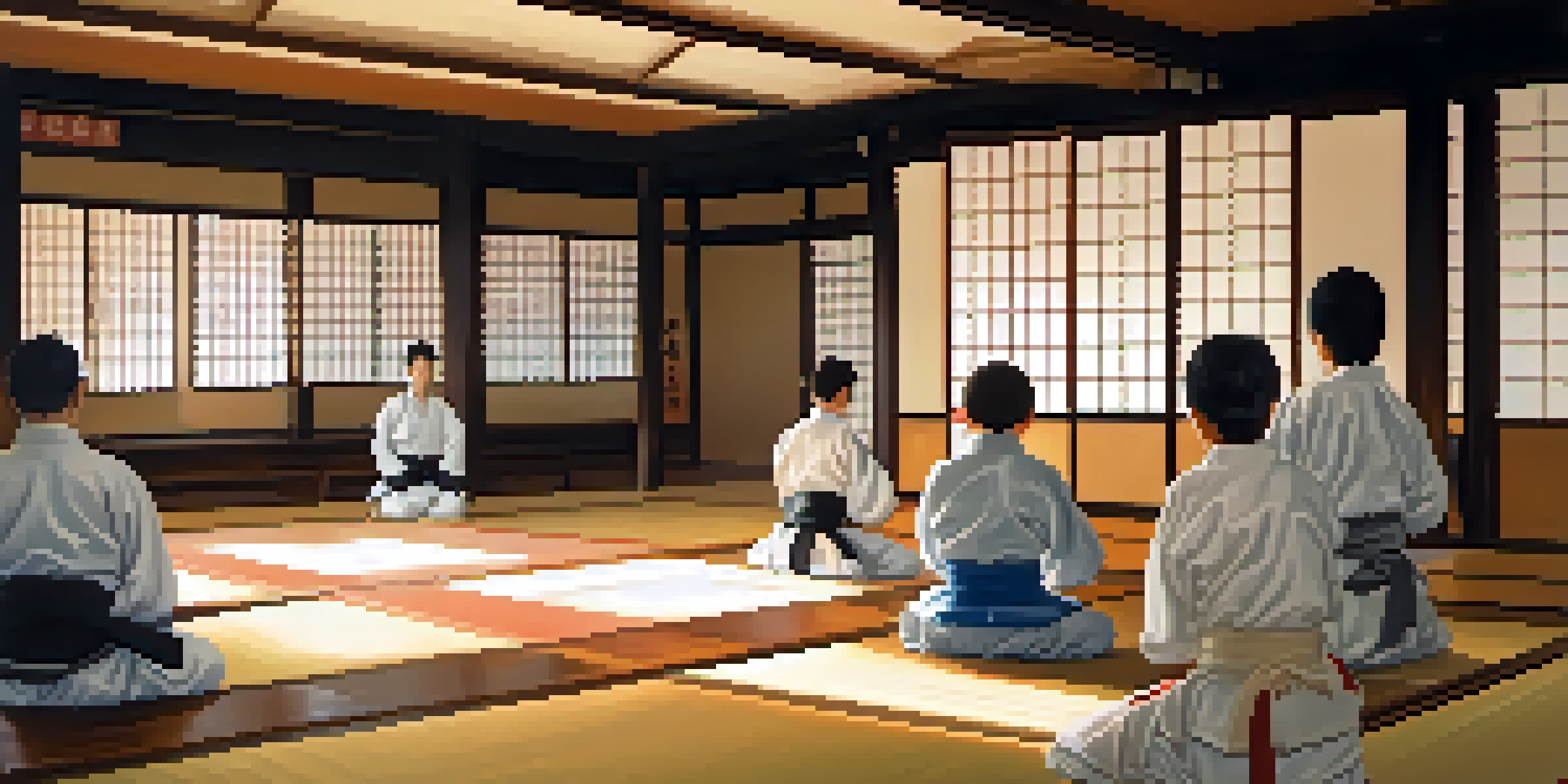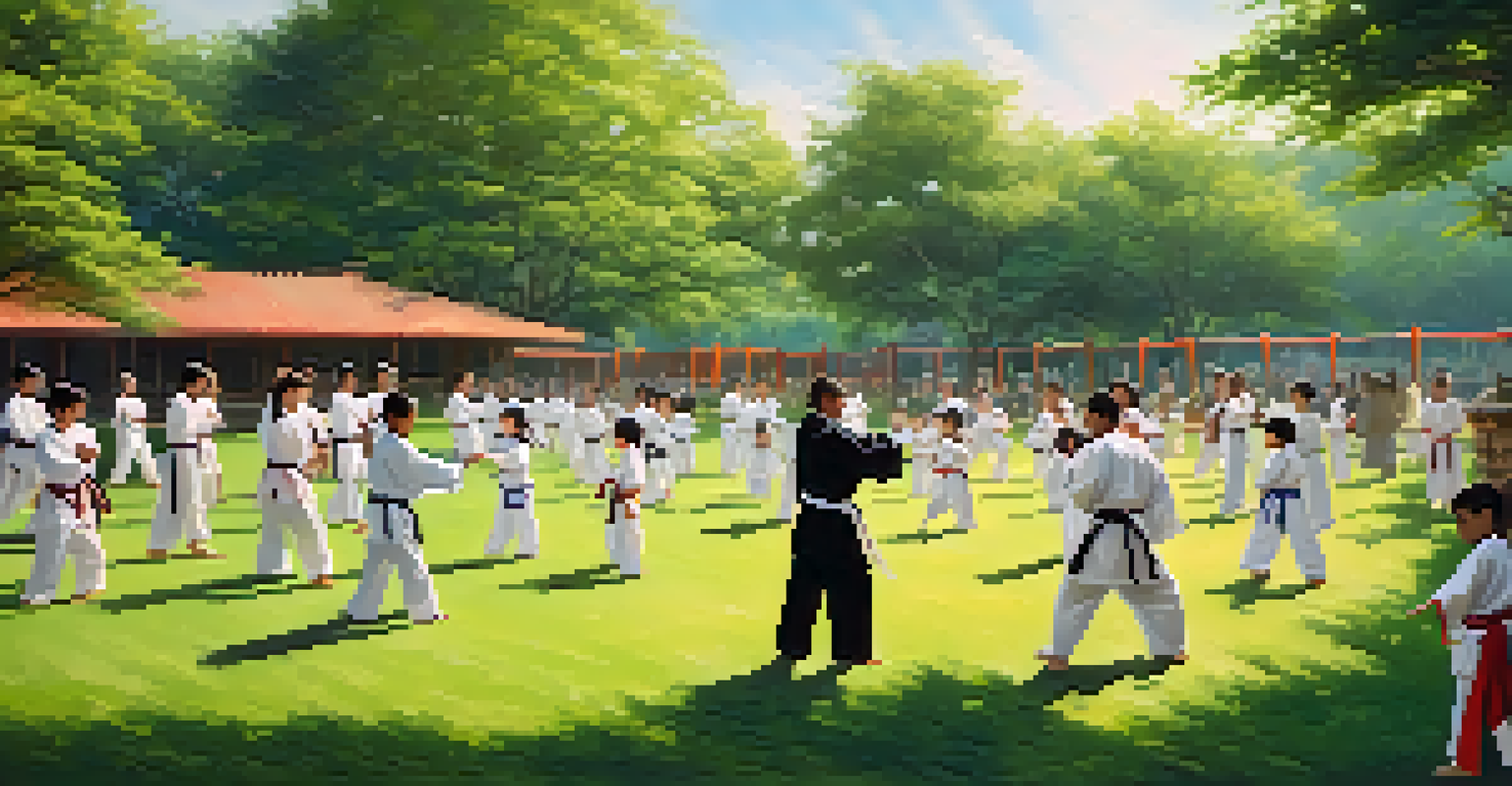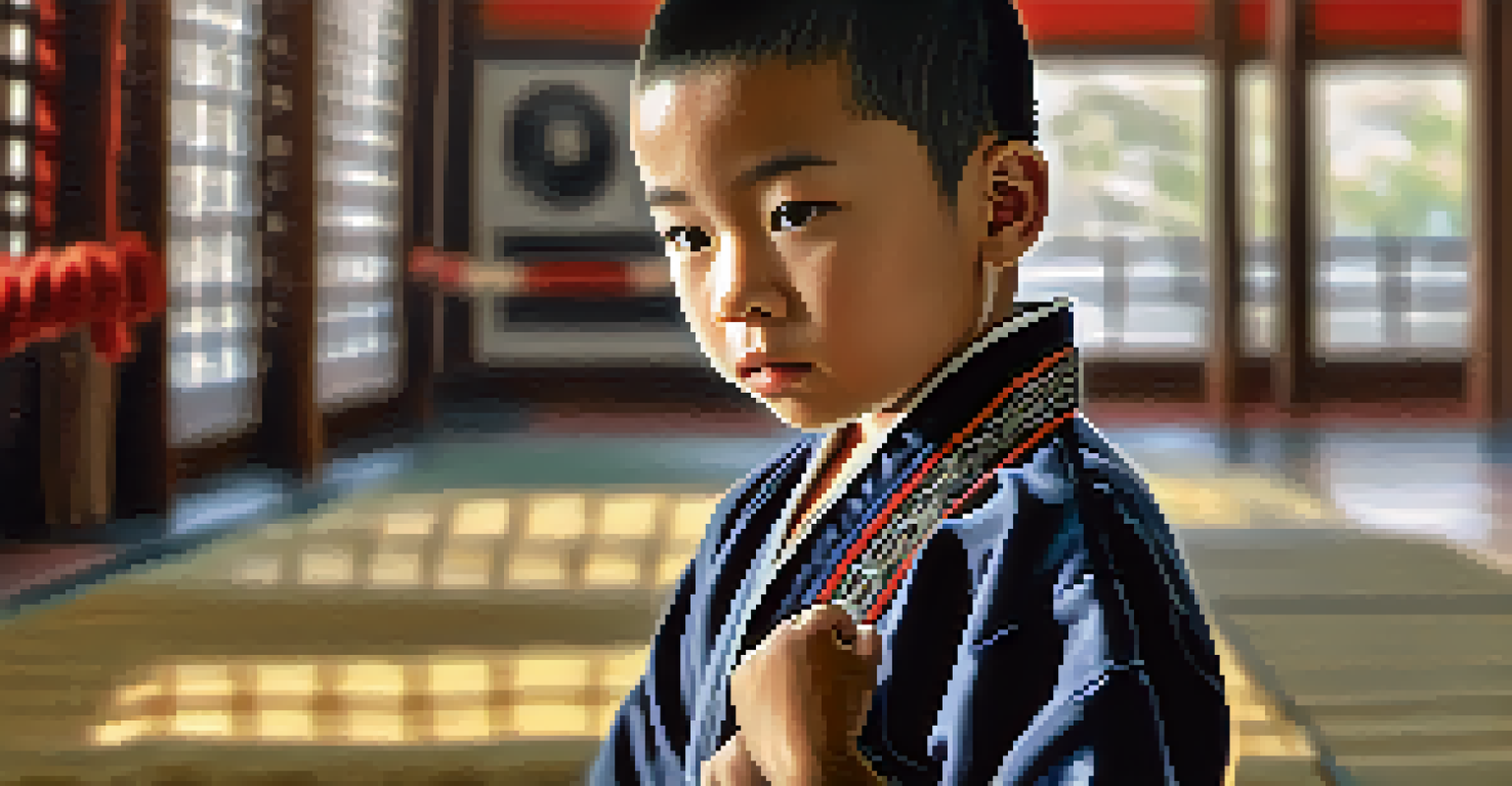How Martial Arts Cultivate Conflict Resolution Skills in Youth

Introduction to Martial Arts and Conflict Resolution
Martial arts are often seen as a means of self-defense or physical fitness, but they also play a crucial role in developing conflict resolution skills. For youth, engaging in martial arts can transform their understanding of conflict from aggression to resolution. This shift is vital in today’s society, where interpersonal skills are increasingly important.
The ultimate aim of martial arts is not having to use them.
By learning various martial arts techniques, young practitioners are taught about discipline, respect, and the importance of peaceful conflict resolution. These lessons extend beyond the dojo, impacting their daily interactions with peers, family, and the community. The structured environment of martial arts training provides a safe space to explore these concepts.
In this article, we will explore how martial arts cultivate conflict resolution skills in youth, providing them with tools to navigate conflicts effectively throughout their lives.
Building Self-Discipline Through Training
One of the foundational elements of martial arts is self-discipline, which is essential for conflict resolution. As youth practice techniques and routines, they learn to control their impulses and emotions, making them less likely to react impulsively in a conflict. This self-regulation is crucial when tensions rise, allowing them to pause and think before they act.

For example, during a sparring session, a young martial artist must assess their opponent's moves and respond appropriately, rather than simply reacting with aggression. This practice helps them develop a thoughtful approach to conflicts in real life. Over time, the discipline cultivated in the training environment translates into better decision-making skills outside the dojo.
Martial Arts Build Conflict Skills
Engaging in martial arts helps youth develop essential conflict resolution skills through self-discipline, respect, and communication.
Thus, through consistent training, youth not only gain physical skills but also develop the mental fortitude needed to handle conflicts maturely.
Promoting Respect and Empathy Among Peers
Martial arts emphasize respect for instructors, peers, and opponents, which is fundamental for conflict resolution. By learning to respect others, youth foster empathy, helping them understand different perspectives in a conflict situation. This understanding is key to addressing issues constructively rather than confrontationally.
Discipline is the bridge between goals and accomplishment.
Consider a scenario where two students disagree during a training exercise. Through martial arts, they learn to communicate openly and respectfully, discussing their viewpoints instead of resorting to anger. This experience teaches them the value of listening and finding common ground, which are invaluable skills in any conflict.
Ultimately, the culture of respect within martial arts creates an environment where youth can practice resolving conflicts amicably, reinforcing positive social interactions.
Enhancing Communication Skills
Effective communication is vital for resolving conflicts, and martial arts training naturally incorporates this skill. As youth engage in partner drills and sparring, they learn to articulate their needs and boundaries clearly. This practice not only applies during training but also equips them with skills to communicate effectively in various life situations.
For instance, when a student feels uncomfortable during a sparring match, they are encouraged to express their feelings. By doing so, they learn to advocate for themselves without resorting to aggression. This ability to communicate openly is invaluable, especially during heated situations where emotions may run high.
Community Support Enhances Learning
The supportive environment of martial arts fosters a sense of community, providing youth with valuable networks for navigating conflicts.
Thus, martial arts serve as a powerful platform for youth to refine their communication skills, enabling them to navigate conflicts more effectively.
Learning Problem-Solving Through Sparring
Sparring sessions in martial arts are more than just physical contests; they are opportunities for youth to engage in problem-solving. During these sessions, practitioners must think on their feet, adapting their strategies based on their opponent's moves. This dynamic environment encourages quick thinking and adaptability—key traits for effective conflict resolution.
Imagine a young martial artist facing a particularly challenging opponent. Instead of panicking, they must assess the situation and develop a strategy to handle it. This experience mirrors real-life conflicts where one must evaluate options and choose the best course of action to resolve an issue, reinforcing the problem-solving skills learned in martial arts.
As a result, sparring not only enhances physical techniques but also sharpens analytical skills necessary for addressing conflicts.
Instilling Confidence and Assertiveness
Martial arts training builds confidence, which is crucial for effective conflict resolution. As youth progress through their training, they achieve belts and recognition for their efforts, boosting their self-esteem. This newfound confidence empowers them to address conflicts assertively rather than passively or aggressively.
For example, a confident student is more likely to stand up for themselves in a challenging situation, using their words to express feelings instead of resorting to physical confrontation. This assertiveness is essential in resolving conflicts, as it enables them to advocate for their needs while maintaining respect for others.
Confidence Empowers Assertive Action
Martial arts training instills confidence in youth, enabling them to address conflicts assertively and advocate for themselves effectively.
Therefore, martial arts not only enhance physical capabilities but also foster the self-assurance needed to face conflicts head-on.
Fostering a Sense of Community and Support
Participating in martial arts often creates a strong sense of community among practitioners. This supportive environment allows youth to share experiences and learn from one another, building a network of friendships. Such connections can be invaluable when navigating conflicts, as they can rely on peers for advice and support.
Imagine a young martial artist facing bullying at school. With the support of their martial arts community, they can seek guidance on how to handle the situation effectively. This network not only offers practical strategies but also emotional support, reinforcing the idea that they are not alone in facing challenges.

In this way, martial arts create a nurturing environment that empowers youth to seek peaceful resolutions to conflicts with the backing of their community.
Conclusion: The Lifelong Benefits of Martial Arts Training
In conclusion, martial arts serve as a powerful tool for cultivating conflict resolution skills in youth. Through self-discipline, respect, communication, and community, young practitioners develop essential skills that extend beyond the dojo. As they learn to navigate conflicts effectively, they are better prepared for the challenges of adulthood.
The benefits of martial arts training go far beyond physical fitness; they equip youth with a toolkit for life. By fostering confidence, empathy, and problem-solving abilities, martial arts empower young individuals to approach conflicts with a positive mindset.
Martial Arts Build Conflict Skills
Martial arts training equips youth with vital conflict resolution skills through discipline, respect, and communication.
Encouraging youth to engage in martial arts can lead to a more peaceful, respectful future, not just for themselves, but for their communities as well.